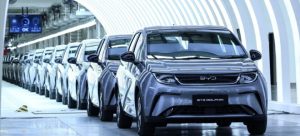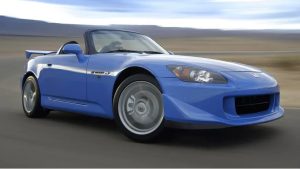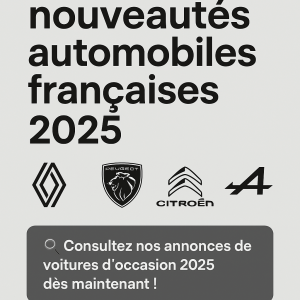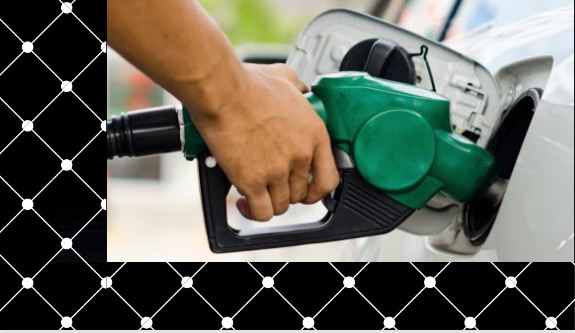- avril 7, 2023
- zidox
- (0)
- global industries
The world of the automobile is in full transformation, and Europe is taking ambitious measures to reduce greenhouse gas emissions. For the past few weeks, an intense debate has taken place within the European Union concerning the ban on thermal cars after 2035.
The European law provides for the marketing of thermal cars after 2035, to promote the development of electric cars. But this decision is not unanimous. The German Chancellor, Olaf Scholz, strongly criticized the text, hoping to bring together the detractors of this project within his country. Many experts are also concerned about the economic consequences of this decision, fearing that this will lead the manufacturers less to switch to electric.
Some offer an alternative: e-fuels. These decarbon fuel rejects as many CO2 as they have consumed in their production, which makes them neutral and without impact on the environment. They have the advantage of being able to be used on current vehicles, without requiring a major change. However, E-Fuels do not solve the problem of greenhouse gas emissions.
Despite debates and controversies, the president of the Environment Commission of the European Parliament, Pascal Canfin, assures that the text has not changed. After 2035, there will be no thermal vehicles, whatever their fuel.
However, there remains a lot of work to do to set up this ban. The legislative process should be concluded by the fall of 2024, which still leaves room for twists and turns passionate.
The world is changing, and the automotive industry must adapt. The decisions that are taken today will have a considerable impact on our future, on our planet and on our economy. The European Union is taking ambitious measures to protect the environment, but this requires the cooperation and commitment of all the actors concerned.

2025 Seauto Crab Pro Pool Cleaning Robot – Smart, Efficient, and Wall-Climbing!

2024’s Best Cooling Maternity Pillow – Full Body Support for Pregnancy Comfort

Premium Pregnancy Body Pillow – Optimal Support for Better Sleep

🔥 MXQ-Pro Smart TV BOX – Turn Your TV into a 4K Media Hub for Under €14!

Elegant 10K White Gold Diamond Ring Set – Perfect for Weddings or Gifts

👉 🕒 Elegance and Reliability: Gold-Plated Luxury Women’s Watch

Real Estate Prices in 2025: What Trends to Expect?

The Real Estate Market in 2025: Trends, Challenges, and Opportunities

BYD Seal U DM-i (2025) – The new plug-in hybrid SUV that aims to shake things up

BYD: The Chinese giant changing the rules of the global auto market

🔥 2026 Honda S2000 – The Legendary Comeback Announced! 🔥

11 Used European Sports Cars You Can’t Miss

🚗 French Car Models to Watch in 2025

LG Showcases AI Innovations at CES Las Vegas 2025

Audi S8 2025 vs. Volkswagen Beetle 2025: Luxury Meets Iconic Design

GIVE THIS NEW TESLA A NAME!!

The Minister of Industry calls for lowering the prices of Opel cars to meet the expectations of Algerian consumers

who is the founder of YouTube, what year, how it went global and how it became affiliated with Google

who is the founder of Google, in what year and how it became global

list of the 10 most visited sites in the world!

The Bibliothèque of Diligence and Honesty

« The Redemption of Broken Hearts »

How to Win Hearts and Make People Love You

how to learn a new programming language quickly
Comment Gagner de l’Argent sur Internet en 2023 : Le Top 25

Preserving the Environment and Meeting Needs: Environmental Research Projects Support Desalination Efforts on the Algerian Coast
« Icon of the Seas: Exploring the World’s Largest Cruise Ship Amidst Ecological Concerns »

« Sonatrach: Selection of 266 Candidates Following the Recruitment Competition in Adrar and Timimoun »

Paradise Beaches: The Top 10 Destinations according to TripAdvisor in 2023

Le plus grand paquebot du monde, « Icon of the Seas », fera cinq fois la taille du Titanic : portrait d’une aberration

Augmentation inattendue des primes d’assurance habitation en France pour les Algériens résidant dans le pays

India will become the world’s second largest economy by 2075, surpassing the United States

Heat wave in Algeria: Weather alert with temperatures reaching 49 ° C

Meet Thermonator, a terrifying flame-throwing robot dog

Where will artificial intelligence lead us?

Tragedy Strikes as Submarine Titan Lost at Sea Near Titanic Wreckage

Actor’s Terrifying Account of « Titan » Submarine Trip to Titanic Wreck Reveals Serious Malfunctions

What is the economy? And how does it work to achieve the welfare of people?

Dazzling: The discovery of an « incredible » sword thousands of years old that still shines

Elon Musk threatens to implement talent subscriptions to Twitter Blue

Schengen visa: 10 easiest countries in 2023

With a political message: The Syrian star, Shukran Murtaji, thanks the Algerian government and people

Liste des sites de petites annonces en Algérie

Découvrez les meilleurs sites de petites annonces en Algérie

Turkish citizens to receive free natural gas for a year as country reaches historic milestone

After a SpaceX rocket explodes, Elon Musk loses $13 billion in one day

« Twitter Controversy: Celebrities Lose Authentication Marks Due to Musk’s New Policy »



Leave a Reply